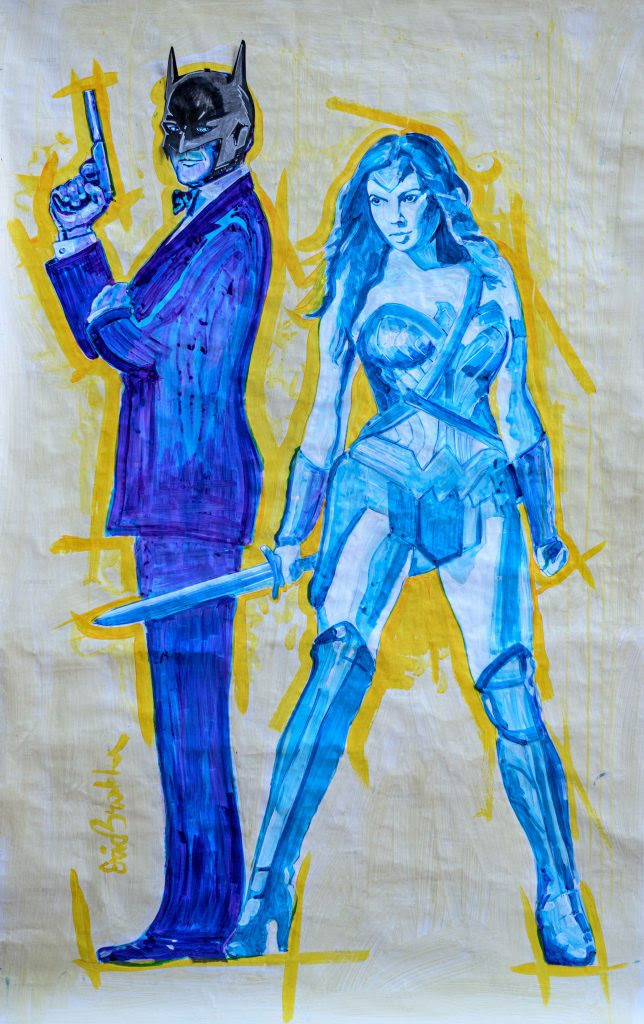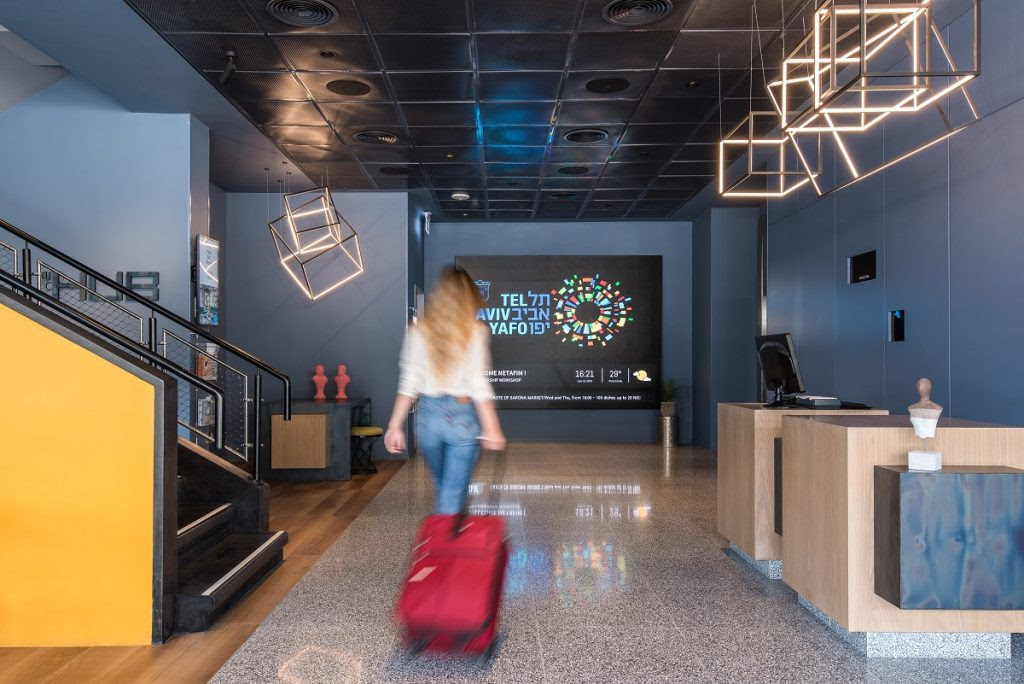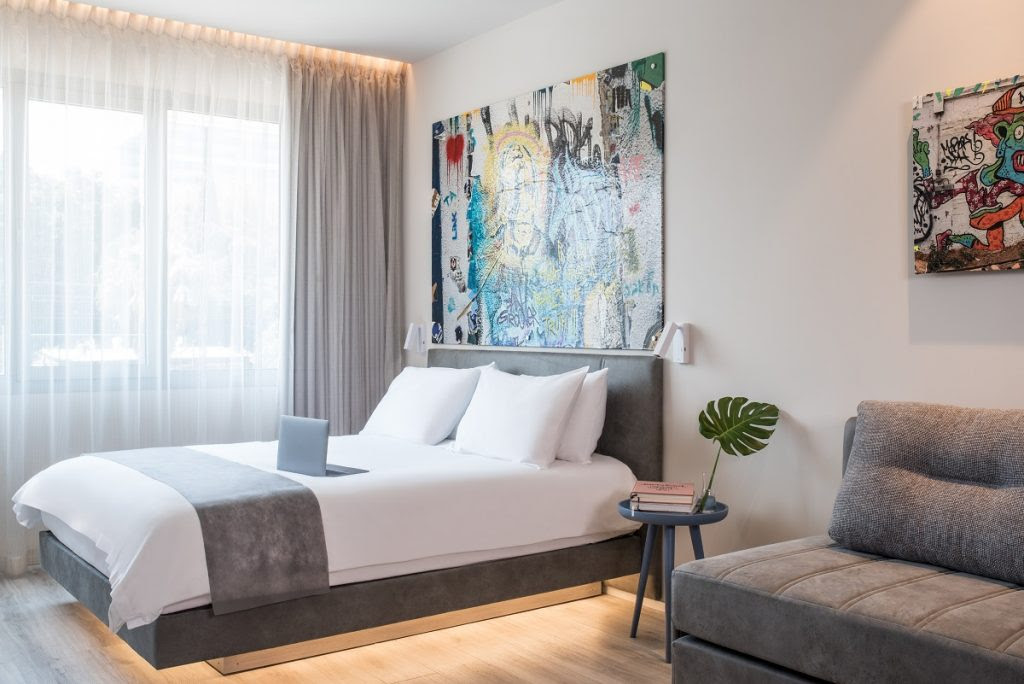Tel Aviv Is World’s First City To Require Electric Scooters With License Plates, Helmets

The Tel Aviv-Jaffa municipality has issued a series of unprecedented new regulations for shared electric scooter companies, which aim to keep riders and pedestrians safe.
These regulations, which the municipality says are the first of their kind in the world, include equipping electric scooters with helmets, installing license plates, recycling used batteries, lowering the speed of the scooters in certain areas, and preventing the usage of scooters in restricted areas.
The regulations, which will be enforced by the city, are meant to set an example for other municipalities around the world who are dealing with similar circumstances, the municipality said in a statement.
The municipality has already issued strict restrictions requiring riders to use their scooters as a speed limit of 15km/h. Scooters and bikes are also banned from sidewalks and riders face fines for endangering pedestrians and being on their phones.
“Our main goal is to keep sidewalks as a safe space for walking, as the city’s sidewalks are designed primarily for pedestrians. Tel Aviv is a very walkable city and we encourage people to take advantage of the city’s small size, flat topography and over 300 days of sunshine a year,” Meital Lehavi, deputy mayor of transportation for Tel Aviv-Yafo said.
The crackdown on electric scooters followed a number of severe injuries and even deaths involving shared scooters and bikes, and complaints by residents feeling endangered on sidewalks.
Tel Aviv introduced shared scooters almost two years ago and a number of international providers operate in the city including Lime, Bird, and Wind.
According to micro-mobility company Lime, Tel Aviv is already one of its top-performing markets.
The municipality embarked on a pilot program in August to regulate companies that were renting out electric scooters in the city. These companies had been subjected to a number of conditions and restrictions in order to obtain a permit to operate in the city, the municipality said.
These companies had to follow a number of conditions and restrictions in order to obtain a permit to operate in the city, which included ensuring availability throughout the city, limiting the maximum number of scooters per company to 2,500 units, allowing parking only in designated areas which have to be marked in the companies’ apps, preventing usage by minors, implementing and activating a service call center, and banning the scooters’ alarms during the nighttime.
The municipality said it will continue with this pilot in 2020, adding additional terms and restrictions with the purpose of increasing road safety. in the future.
Israel To Set Up 3 Tech Incubators In Periphery Towns

Three high-tech incubators are set to be established in local periphery towns in Israel, the Israel Innovation Authority (IIA) announced Monday.
The incubators will be located in the northern Israeli town of Karmiel, at the Idan HaNegev Industrial Park near the southern Bedouin city of Rahat, and in the southern city of Yeruham in the Negev desert as part of the IIA’s Startup Division’s program.
The incubators will assist with the establishment of 130 startups over the course of five years, with a budget of up to NIS 1 million (about $288,000 per startup, according to an IIA statement.
They will support entrepreneurs from concept to market entry through the IIA’s various support programs. The incubators will provide investment support, mentors, strategic partners, investors from Israel and abroad, and access to laboratories, production facilities, pilot programs and more.
“Establishing technological incubators in the periphery is a significant milestone that is expected to generate significant economic value in the local ecosystem, attracting numerous investments, industry, and human capital,” said Eli Cohen, Israeli Minister of Economy and Industry.
He also said that the establishment of these centers will result in the “increase of high-tech companies opening R&D operations in the periphery, a future increase in the number of active high-tech employment centers, an increase in high yield jobs and a decrease in migration of professionals to the center of the country.”
The incubator in Carmiel will be established by franchise holder I 4 Valley.
I 4 Valley was selected to operate an Industry 4.0 incubator in Carmiel and in the Galilee.
The incubator near Rahat will be called Innegev. Innegev was selected to operate an incubator in the fields of cleantech, agritech, plastics, and advanced industry in the northern Negev.
The incubator in Yeruham will be a medical cannabis incubator called CanNegev. It will be operated by a consortium that includes Jerusalem-based equity crowdfunding platform OurCrowd, private label over-the-counter pharmaceuticals manufacturer Perrigo, and Israeli licensed cannabis cultivator BoL Pharma.
The franchise holders were selected in a competitive process in which twelve diverse, high-quality proposals from throughout the periphery were submitted to the Israel Innovation Authority.
The program to establish incubators in the periphery is intended to encourage local entrepreneurship and create startups with a high chance of expanding and creating quality jobs in the area, according to the statement.
“The incubators will bring significant added value to support technological entrepreneurship in the periphery, whether via entrepreneurs or research institutions, by granting access to their wide network of contacts and potential clients and by using their vast business and technological experience in bringing products to market,” said Aharon Aharon, CEO of the Israel Innovation Authority.
High-Tech Tel Aviv Hotel Pays Tribute To Batman With Lively Street Art Exhibit
The LINK Hotel & Hub in Tel Aviv, an app-powered hotel that offers a unique wireless lodging experience, is launching an original exhibition by contemporary Israeli street artists dedicated to DC Comics hero Batman.
The hotel is marking the 80th anniversary of the introduction of the fictional character in Detective Comics volume 27 in 1939 by artist Bob Kane and writer Bill Finger, both Jewish-American artists. Batman soon gained his own eponymous comic book title, taking readers and fans on journeys fighting crime and taking down bad guys in Gotham City using superior detective skills, martial arts, and various futuristic weapons and equipment which he funds through his own personal fortune. Batman, after all, does not possess superpowers.

The exhibit runs from December 22, 2019 to January 30, 2020, drawing on the talents of 15 Israeli and international artists from the Tel Aviv street art and graffiti scenes. Among them is Edgar Rafael, a Russian-born Israeli artist, designer, painter, and sculptor who in 2017 was chosen to paint a Tel Aviv lifeguard tower that was turned into a boutique hotel.
The original Batman works are displayed on canvas, wood, and paper, and prints will be made available for sale following the exhibition, the hotel announced.

The LINK hotel’s Batman art exhibition was curated by award-winning French photographer and artist Daniel Siboni, the hotel’s chief art curator who also put together the hotel’s unique street art collection that lines the corridors and guestrooms. Each floor in the LINK hotel is dedicated to one of 12 street artists tapped to produce original artwork for the hotel. All the artwork is for sale.
Siboni and French-Israeli artist Eric Brakha worked on a unique piece for the exhibit that depicts Batman – mask on, but still wearing what appears to be a tailored suit made for by his Bruce Wayne identity – and a very Gal Gadot-looking Wonder Woman.
Artsy and app-run
The LINK hotel opened its doors in July 2018 and was named among the world’s “100 most incredible hotels” by Fodor’s Travel, a New York-based leading travel publication, just a few months later.
The 94-room hotel is owned by the Dan Hotels chain of Israeli luxury hotels and was built with an investment of NIS 40 million ($10.6M).
The hotel offers a tech-focused stay with no cash transactions, no reception desk, no bellboys and no concierge. Instead, guests download the LinkApp to their phones to perform a number of transactions including checking in, out, unlocking their rooms, controlling in-room functions such as the TV and air-conditioning, and adjusting the color and intensity of the light settings. Through the app, guests can also make free calls across Israel.
The app also serves as a virtual concierge that helps guests explore Tel Aviv, providing information on entertainment, dining, shopping, nightlife, culture, and transportation to the airport and around the country from the hotel’s King Saul Avenue location in central Tel Aviv.

The hotel has a hub that functions as a coworking space – ubiquitous in cities nowadays – and a common area for guests with a full-size pool table, board games, and video games. Food and drinks are available from the street-side Link café and the Hub kitchen & bar.
There’s also a fully-equipped hotel gym and spa, personal storage lockers, self-service laundry facilities, and vending machines.
This year, the hotel launched an art studio called LINK Street, featuring a variety of unique street art items created exclusively for the space that can also be purchased.

| OurCrowd To Co-Run Government-Backed Medical Cannabis Incubator In Negev
Posted: 23 Dec 2019 12:56 PM PST Israel is set to establish an incubator for the development of cutting-edge medical cannabis technologies in the southern Israeli town of Yeruham in the Negev desert. Jerusalem-based equity crowdfunding platform OurCrowd announced this week that a consortium it established in partnership with Perrigo, a private label over-the-counter pharmaceuticals manufacturer and BoL Pharma, one of the first licensed cannabis cultivators in Israel, has won a tender by the Israel Innovation Authority to operate the government-backed incubator, dubbed CanNegev. The consortium will operate the incubator for five years and will have the option to extend for another three years, according to the terms of the tender. The Israel Innovation Authority and member companies of the consortium will invest an estimated NIS 150 million (about $43 million) to operate the incubator, support startups, who become part of it and follow up on investments, according to a joint announcement. The consortium will aim to choose six startups with breakthrough technology in the medical cannabis sector per year to be part of the incubator, for a total of 30 companies over the course of the first five years. “The government and the consortium intend to transform the town of Yeruham into the cutting-edge of the global medical cannabis market, which is projected to expand to $59 billion in 2025,” said Jon Medved, CEO and founder of OurCrowd. “We will find startups with breakthrough technologies, make seed and follow on investments and equip them with all the necessary tools for success in the international market,” Medved promised. “The member firms of the consortium have a wealth of knowledge and experience in the medical field and in medical cannabis, and this will be placed fully at the disposal of the innovators. It should be noted that Perrigo already operates a highly sophisticated manufacturing plant in Yeruham and its familiarity with the city and the region will also contribute to the success of the project,” he added. Yeruham Mayor Tal Ohana who has been working to make the city Israel’s “cannabis capital,” said she “the vision of turning Yeruham into a research, technology and production capital for medical cannabis” is now being realized. “The incubator will serve as an anchor for innovators from around the world and will upgrade the activities of entrepreneurs, who are already in the process of allocation of land for the establishment of cannabis extraction plants in Yeruham,” said the mayor, who leads a city of fewer than 10,000 people. “This is a true defining moment for the Ministry of Economy and the Innovation Authority in their recognition of the medical cannabis industry as a future growth engine for the Israeli economy,” said Tamir Gedo, CEO of BoL Pharma. “The Ministry of Health and the Medical Cannabis Unit at the ministry have wisely established the regulatory and research ecosystem that gives Israel’s medical cannabis industry a competitive advantage, and the incubator in Yeruham is an additional important layer to this ecosystem. This layer will enable initial funding for startups in the sector in order to utilize this advantage and establish in Israel a medical cannabis industry with tremendous know-how and skilled manpower for years to come. We’re proud to establish the world’s first government-supported medical cannabis incubator,” added Gedo. |









